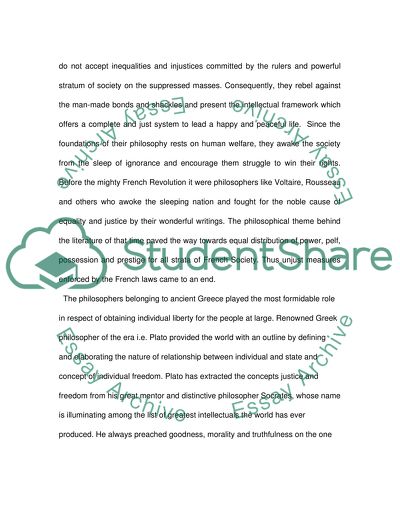Cite this document
(Concept of Individual Liberty Development Essay, n.d.)
Concept of Individual Liberty Development Essay. https://studentshare.org/philosophy/1556941-how-has-the-concept-of-individual-liberty-changed-throughout-the-history-of-political-thought-discuss-and-develop-an-argument-based-on-the-works-of-authors-discussed-throughout-the-course
Concept of Individual Liberty Development Essay. https://studentshare.org/philosophy/1556941-how-has-the-concept-of-individual-liberty-changed-throughout-the-history-of-political-thought-discuss-and-develop-an-argument-based-on-the-works-of-authors-discussed-throughout-the-course
(Concept of Individual Liberty Development Essay)
Concept of Individual Liberty Development Essay. https://studentshare.org/philosophy/1556941-how-has-the-concept-of-individual-liberty-changed-throughout-the-history-of-political-thought-discuss-and-develop-an-argument-based-on-the-works-of-authors-discussed-throughout-the-course.
Concept of Individual Liberty Development Essay. https://studentshare.org/philosophy/1556941-how-has-the-concept-of-individual-liberty-changed-throughout-the-history-of-political-thought-discuss-and-develop-an-argument-based-on-the-works-of-authors-discussed-throughout-the-course.
“Concept of Individual Liberty Development Essay”. https://studentshare.org/philosophy/1556941-how-has-the-concept-of-individual-liberty-changed-throughout-the-history-of-political-thought-discuss-and-develop-an-argument-based-on-the-works-of-authors-discussed-throughout-the-course.


